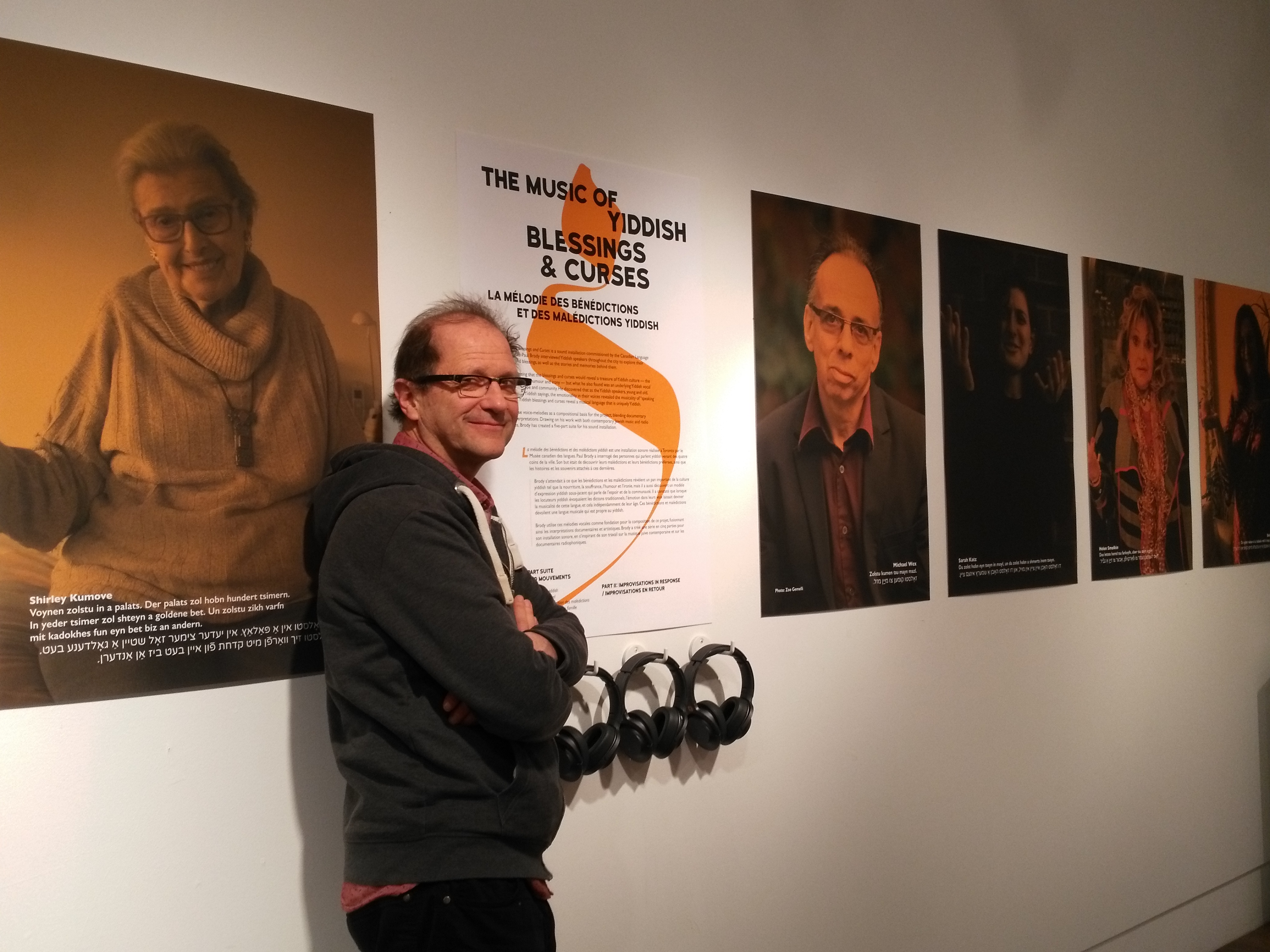
The Music of Yiddish Blessings and Curses installation was a collaboration with the Ashkenaz Festival in Toronto. Paul Brody interviewed Yiddish speakers throughout the city to explore their favourite curses and blessings, as well as the stories and memories behind them.

Brody was expecting that the blessings and curses would reveal a treasure of Yiddish culture — the food, the suffering, the humour and irony — but what he also found was an underlying Yiddish vocal pattern to narrating hope and community. He discovered that as the Yiddish speakers, young and old, invoked the traditional Yiddish sayings, the emotionality in their voices revealed the musicality of ‘speaking Yiddish.’ Brody recalls:
I became fascinated by how my interviewee’s voice-melody often shifted from conversational to a melodic, almost singing voice, through the uttering of a blessing or a curse.
Brody uses these voice-melodies as a compositional basis for the project, blending documentary and artistic interpretations. In a broader sense, the sound installation explores the dialectic of traditional and spontaneity, formulaic and the fluctuating, sacred and secular.
Yiddish blessings and curses reveal a musical language that is uniquely Yiddish. During her interview, Miriam Borden explains, The words might not be in Yiddish, but the way of talking is Yiddish.
Drawing on his work with both contemporary Jewish music and radio documentaries, Brody creates a five-part suite for his sound installation: 1. Talking Yiddish 2. Bagel Hell 3. Curse Composition 4 Feeling Family 5 Belly Blessing
The final Toronto exhibition will add two more dimensions. Brody is asking musicians around the world to respond to his recordings of Yiddish blessings and curses with their own short musical improvisations based on the the voice-melodies of Yiddish blessings and curses. Visual contributions will come from Miriam Borden, a doctoral student at the Centre of Jewish Studies
at the University of Toronto. Portraits of the people who were interviewed for the project and key phrases will be displayed graphically.
Musicians on Part I Berlin-Vienna-Toronto klezmer scene: Alan Bern-accordion, Christian Dawid-clarinet, Daniel Weltlinger-violin, Peck-Kubaczek, Cynthia-cello, Benjy Fox-Rosen-bass & voice, Paul Brody-trumpet, trombone, Lorie Wolf-drums
Musicians on Part II who interpret the voice-voice-melodies
Dan Blacksberg -trombone, Daniel Kahn -voice, Joshua Horowitz -accordion, Brian Katz -guitar, Marilyn Lerner -piano, Frank London -trumpet, Sasha Lurje -voice, Benjy Fox Rosen -bass/voice
Cookie -Segelstein-violin, Eric Stein -Mandolin, Lorie Wolf -drums
Two generations of Toronto Yiddish speakers interviewed: Michael Wex, Shirley Kumove, Jack Newman, Helen Smolkin , Belva Spiel, Jordon Chad, Sarah Katz, Miriam Borden